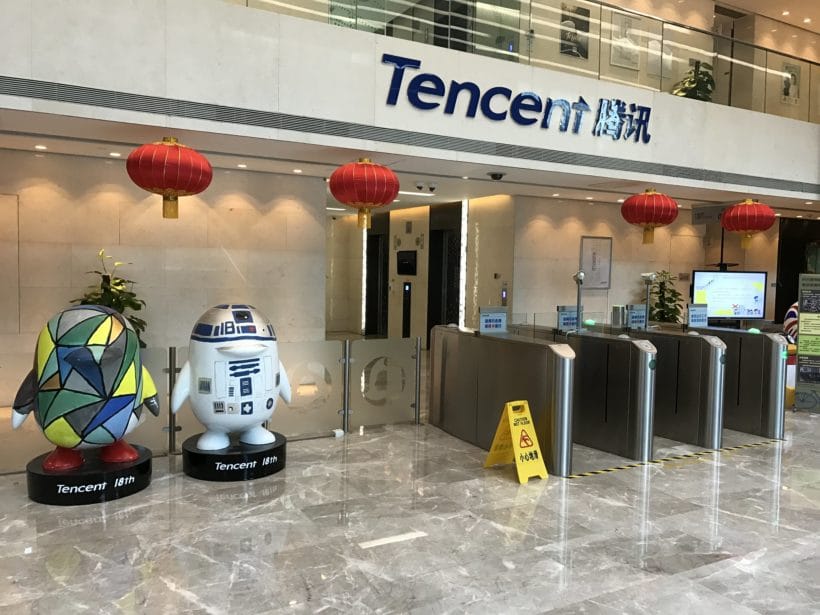
SHANGHAI, April 21 (Reuters) – Tencent Holdings Ltd is the best of China’s energy-guzzling cloud services providers when it comes to tackling carbon emissions and procuring from renewable sources, Greenpeace said in a research report.
Internet firms now rank among the biggest corporate consumers of electricity, and in China rely largely on carbon-intensive coal-fired power to keep their data centres humming around the clock.
The environmental group has predicted that energy consumption by China’s data centre industry will rise by two-thirds between 2019 and 2023, at which point the sector’s total power use will equal the whole of Australia’s.
Tencent had a positive record on transparency and had increased renewable energy procurement, Greenpeace said, without giving details.
The gaming and social media giant also said in January it would work towards carbon neutrality, although it did not give a target date.
Huawei Technologies ranked second and Baidu Inc third. Alibaba fell from first place last year to fourth with Greenpeace saying it had performed poorly in disclosing energy data and switching to renewable energy sources.
Alibaba said in a statement that it was committed to developing green data centres. “It is our ongoing mission to embed eco-friendliness to our technologies,” it said.
The report analysed the performance of China’s 22 largest cloud and data centre companies in areas such as renewable energy, energy efficiency and data transparency.
Thirteen of those companies have begun to actively procure renewable energy, up from eight in 2019, but only Baidu and the Chindata Group have renewable energy usage rates higher than 3%, it said.
Greenpeace urged internet and data centre firms to aim for 100% renewable energy use and to become carbon neutral by the end of the decade.
The Chindata Group is the only major Chinese firm to promise to achieve carbon neutrality by 2030, it said.
(Reporting by David Stanway and Josh Horwitz; Editing by Edwina Gibbs and Jan Harvey)

